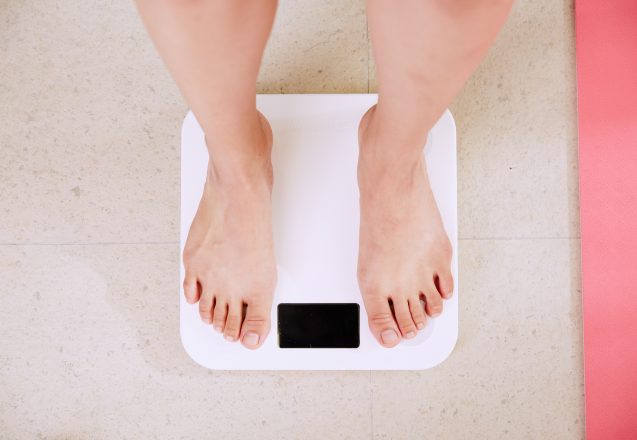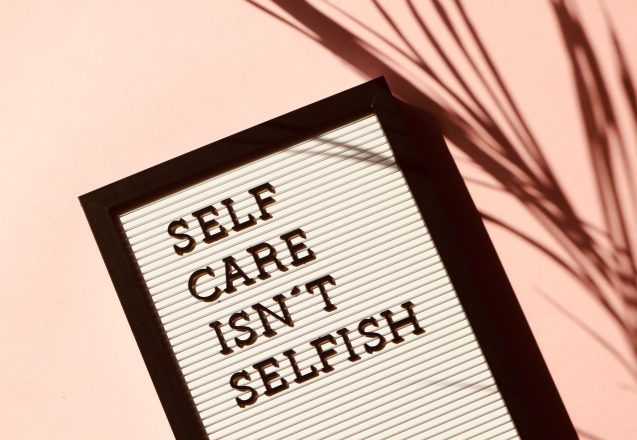Burn Calories and Boost Your Mood
 You can actually watch people’s faces change from stressed to more relaxed as they workout at Body Sculptors in Louisville, KY. When you workout, you not only burn calories, you also boost your mood. The recent stay at home order caused many people to become sedentary and there was an increase awareness of depression on a national level. Society wasn’t getting the exercise they needed to chase the blues away and often mild depression became even worse. While there are medications for this mental health issue, one of the best ways to help is strength building exercises. You’ll get a benefit for the body and the mind.
You can actually watch people’s faces change from stressed to more relaxed as they workout at Body Sculptors in Louisville, KY. When you workout, you not only burn calories, you also boost your mood. The recent stay at home order caused many people to become sedentary and there was an increase awareness of depression on a national level. Society wasn’t getting the exercise they needed to chase the blues away and often mild depression became even worse. While there are medications for this mental health issue, one of the best ways to help is strength building exercises. You’ll get a benefit for the body and the mind.
Strength training has both mental and physical benefits.
Strength training is a real calorie burner that builds muscle tissue. That muscle tissue requires more calories to maintain than fat tissue does, so it raises the body’s metabolism. That’s a huge benefit when you’re trying to lose weight. It also boosts mental health, according to the WHO—World Health Organization. The WHO suggests you get at least two days of strength training for improved bone strength, overall fitness and improved mental health. While the endorphins make you feel good, it’s more than that. Strength training helps improve sleep, reduce anxiety and symptoms of depression, improve cognitive thinking and increase self-esteem.
A meta-analysis backed the belief that exercise was good for mental health.
A meta-analysis is a study of many different studies on the same subject. One recent one was looking at those that looked at the mental health effects of strength training. The conclusion was that people who did strength training received benefits that included the reduction of depression symptoms and a significant improvement in their mental health. The studies spanned various health statuses, amount of training received and even whether they actually became stronger. For people that had no signs of depression, there was modest improvement in attitude, but for those with mild or moderate symptoms the improvement was far greater.
How does exercise actually help?
While strength training was the focus on the meta-study, other studies showed that aerobic training also helped. It helps explain why people pace when they’re under stress. Dopamine, endorphins and norepinephrine are released during exercise and these hormones boost your mood. Exercise helps build new neurons in the brain and they are the communicator cells. They release the chemicals that help keep your mind calm. Several studies show that HIIT—high intensity interval training—lowered symptoms of depression in older adults better than normal depression treatment or low intensity workouts.
- When people workout and stick with a program, they often increase their self-esteem because they’re doing something good for themselves and accomplishing goals.
- A protein— the brain-derived neurotrophic factor—is boosted via exercise. That protein is lower in people that have depression.
- An 11-year study of 34,000 adults showed that people who exercised as little as an hour or two a week were far less likely to be depressed than those who didn’t by as much as 44 %.
- Exercise helps improve sleep and improved sleep is a great way to help avoid depression.
For more information, contact us today at Body Sculptors Personal Training



 Going to Disneyland, taking a vacation or enjoying the latest nightspot may not be what you need to be your happiest. Sometimes, you can improve your happiness by stepping back and taking a short break. Wearing the latest fashions, being in with the in-crowd and having the latest iPhone isn’t going to make it either. Being happy is a state of mind. Nobody can make you happy but you. Sometimes, all it takes is carving out a few minutes each day to count your blessings and looking at the things that truly make you happy.
Going to Disneyland, taking a vacation or enjoying the latest nightspot may not be what you need to be your happiest. Sometimes, you can improve your happiness by stepping back and taking a short break. Wearing the latest fashions, being in with the in-crowd and having the latest iPhone isn’t going to make it either. Being happy is a state of mind. Nobody can make you happy but you. Sometimes, all it takes is carving out a few minutes each day to count your blessings and looking at the things that truly make you happy.
 How can I say your weight doesn’t really matter when I’m helping people in Louisville, KY, shed extra pounds? It’s easy because it’s true. Too often people focus too much on weight. It means you’re on results, rather than process, and just one result. Getting into shape isn’t all about weight loss. If you’re eating healthy and working out regularly, getting to a healthy weight is one of the outcomes, but so is increased strength, endurance, flexibility and better health.
How can I say your weight doesn’t really matter when I’m helping people in Louisville, KY, shed extra pounds? It’s easy because it’s true. Too often people focus too much on weight. It means you’re on results, rather than process, and just one result. Getting into shape isn’t all about weight loss. If you’re eating healthy and working out regularly, getting to a healthy weight is one of the outcomes, but so is increased strength, endurance, flexibility and better health.
 For some reason, it has become noble to work yourself to a frazzle and simply take care of other people’s needs. It shouldn’t be that way. In fact, it’s not just an unhealthy stance to take, it’s also dangerous and counterproductive. You should take care of yourself so you have the energy to help others and the good health not require others to take care of you. There are some emergencies where that doesn’t hold true, but for the day-to-day schedule, you deserve to be number one.
For some reason, it has become noble to work yourself to a frazzle and simply take care of other people’s needs. It shouldn’t be that way. In fact, it’s not just an unhealthy stance to take, it’s also dangerous and counterproductive. You should take care of yourself so you have the energy to help others and the good health not require others to take care of you. There are some emergencies where that doesn’t hold true, but for the day-to-day schedule, you deserve to be number one.
 When time was available, did you find that you didn’t get all those things done you thought you would if you just had a little more time? It’s been the same experience for most people that I’ve talked to recently. They found that it was just as hard to stay physically and mentally healthy when you’re stuck at home, as it is when you’re busy with work and running everywhere. Most people give tips on how to make time, but ignore the fact that too much time leaves us all open to procrastinating. It all starts by taking the first step toward a healthy lifestyle. We have provided online help to make it easier.
When time was available, did you find that you didn’t get all those things done you thought you would if you just had a little more time? It’s been the same experience for most people that I’ve talked to recently. They found that it was just as hard to stay physically and mentally healthy when you’re stuck at home, as it is when you’re busy with work and running everywhere. Most people give tips on how to make time, but ignore the fact that too much time leaves us all open to procrastinating. It all starts by taking the first step toward a healthy lifestyle. We have provided online help to make it easier.
 If you’ve read much about eating healthy, you’ll probably notice that salmon is often recommended. There are good reasons that nutrition experts recommend salmon. Let’s start with it as a source of healthy Omega3 fatty acid. There’s a recommended ratio of omega6 fatty acid to omega3. The average American diet contains somewhere between a 10 parts Omega6 to 1 part Omega3 all the way to a fifty to one ratio. It should be closer to a four to one ratio and that’s where salmon can help. According to the Heart Association and Mayo Clinic, boosting your Omega3 is one of the best ways to improve your heart health. It protects blood vessels, lowers blood pressure, prevents clots and lowers triglycerides. Replacing meat with salmon can lower cholesterol levels.
If you’ve read much about eating healthy, you’ll probably notice that salmon is often recommended. There are good reasons that nutrition experts recommend salmon. Let’s start with it as a source of healthy Omega3 fatty acid. There’s a recommended ratio of omega6 fatty acid to omega3. The average American diet contains somewhere between a 10 parts Omega6 to 1 part Omega3 all the way to a fifty to one ratio. It should be closer to a four to one ratio and that’s where salmon can help. According to the Heart Association and Mayo Clinic, boosting your Omega3 is one of the best ways to improve your heart health. It protects blood vessels, lowers blood pressure, prevents clots and lowers triglycerides. Replacing meat with salmon can lower cholesterol levels.
 Anxiety, being uptight and suffering from stress occurs everywhere, not just Louisville, KY. You don’t have to run to a physician to get a prescription or take an over the counter medication to help you relax. There are lots of natural ways to get rid of that anxious feeling. Exercise is one of those ways to burn off stress hormones. A good night’s sleep is another. For those occasional times, using calming herb and spices can also help to fight anxiety.
Anxiety, being uptight and suffering from stress occurs everywhere, not just Louisville, KY. You don’t have to run to a physician to get a prescription or take an over the counter medication to help you relax. There are lots of natural ways to get rid of that anxious feeling. Exercise is one of those ways to burn off stress hormones. A good night’s sleep is another. For those occasional times, using calming herb and spices can also help to fight anxiety.
 No matter where you live, Louisville, KY, or other city, you probably have heard of a variety of different diets, including the Paleo Diet. If you don’t know what it is, it’s a diet based on what man probably ate during the Paleolithic era. It’s also called the caveman diet for the same reason. Why would you go back to that type of menu? Those who practice it and follow the diet say it’s more like eating what the body is matched to genetically, before the era of farming.
No matter where you live, Louisville, KY, or other city, you probably have heard of a variety of different diets, including the Paleo Diet. If you don’t know what it is, it’s a diet based on what man probably ate during the Paleolithic era. It’s also called the caveman diet for the same reason. Why would you go back to that type of menu? Those who practice it and follow the diet say it’s more like eating what the body is matched to genetically, before the era of farming.
 In today’s busy world, it’s easy to run on empty, many Americans do. That’s not healthy. It’s better to increase your energy levels naturally by making lifestyle changes. Not only will you get a boost to your energy levels, you’ll also improve your overall health, so it’s a win-win situation. When your energy level is low, you get less done because you’re moving slower, both physically and mentally. Making changes may take time from your schedule, but with that extra energy, you’re creating even more time than it took.
In today’s busy world, it’s easy to run on empty, many Americans do. That’s not healthy. It’s better to increase your energy levels naturally by making lifestyle changes. Not only will you get a boost to your energy levels, you’ll also improve your overall health, so it’s a win-win situation. When your energy level is low, you get less done because you’re moving slower, both physically and mentally. Making changes may take time from your schedule, but with that extra energy, you’re creating even more time than it took.
 There’s a lot of reasons to focus on fitness, one of those is to help your body function at its peak performance, which includes biochemical actions. Serotonin one of the products created. It’s a neurotransmitter, which means relays messages between neurons and are part of the central nervous system, influencing the nervous system and brain cells both directly and indirectly. The only way for the brain to get it and have proper serotonin levels in the brain is for the brain to produce it, since it can’t cross the blood-brain barrier and has to be produced in the brain.
There’s a lot of reasons to focus on fitness, one of those is to help your body function at its peak performance, which includes biochemical actions. Serotonin one of the products created. It’s a neurotransmitter, which means relays messages between neurons and are part of the central nervous system, influencing the nervous system and brain cells both directly and indirectly. The only way for the brain to get it and have proper serotonin levels in the brain is for the brain to produce it, since it can’t cross the blood-brain barrier and has to be produced in the brain.